Police reform is one of the significant challenges facing us in the United States. Lisa Broderick, founder and executive director of Police2Peace, notes that one of the fundamental difficulties is that there are 18,000 police agencies in the United States. They are all locally funded and operated and are subject to relatively little Federal control.
“It's not a political issue. It's really a practical issue,” Lisa says.
Engaging the African American Community
As Lisa and I chatted about police reform, it was important to cover the fact that the need for police reform grows out of stress and conflicts between the police and the African American community and other communities of color. Neither of us is Black.
Police2Peace works to understand and incorporate community perspectives, including members of the African American and other minority communities.
Lisa started her work in Jacksonville, Florida, a community that is 21 percent African American.
Police2Peace starts its work with communication. “The first thing we might do is a survey which gauges perceptions of the police citywide,” Lisa says.
“Number two, then we would convene community listening sessions, very small listening sessions from five to maybe 15 people, of all people from all over the community,” she says.
“Once we've done that for a while, we bring the groups together,” Lisa says. “We bring in policing leaders; we bring in police officers into these conversations, and Devin, the things that people say break your heart both with joy and with sorrow at the state of our society and our interaction.”
Lisa suggests this work is an essential part of restoring peace to a community. “When we speak as people, those barriers fall away, and that is never forgotten by the people.”
This communication helps to overcome bias.
“First of all, bias exists. We all have biases,” Lisa says. “There's bias in policing because police are human beings.”
She offers a thought question to frame her approach. “If an individual might have had a bias against someone who was black running in their neighborhood and then they may have called someone, the question is, is the police response just? Is it empathetic? Is it effective?”
“Justice isn't justice unless it's applied equally to everyone,” Lisa says.
Restoring public trust is essential. “As we're seeing today, when there's not a belief in public institutions, there can be no public safety,” she says.
Engaging everyone within the community is required. “We want to hear all the voices and then create community safety that works for everyone,” Lisa says.
Police2Peace Programs
A big part of the Police2Peace agenda is to teach genuine community policing. “A police officer riding on a bicycle is not community policing,” Lisa says. “Community policing is an attitude.”
The effort begins with a simple social hack. “The social hack is something that's clever and wonderful and changes huge swaths of society really very easily,” she says.
The hack is to simply put the words “Peace Officer” on vehicles and uniforms to frame the cops’ attitude toward their work.
The work that Police2Peace does for police agencies includes “technical assistance” to help reinvigorate community policing. Lisa believes that the police are not only a part of the community but that the community must also be part of policing.
“A second part of our work is community-based, where we go into a community often after a tragedy, terrible violence or a police-involved shooting and help the community understand, come to a place where they can join with the police and the police can join with the community to truly heal,” Lisa says.
Additional programs for police agencies include the “Peace Officer Promise.” Police2Peace encourages agencies to take this Hippocratic oath for policing publicly:
“We, [insert department name], promise that while doing our best to control crime, we will do everything in our power to do no harm to the communities we serve and protect.”
“When community members hear that, decades of difficulty and suspicion and challenges begin to melt away,” Lisa says.
Police2Peace also provides de-escalation training.
As we chatted about the militarization of local policing, Lisa noted that recruiting and training the right people is essential. “It’s who we hire. So what are the images on the website that attract [candidate officers]? What does the website say? What are the press releases? What’s the recruitment like? What is the promotion like? How are we rewarding these people?”
She says, “It all has to be changed, and our program does that from beginning to end because we are creating a framework that's an attitude that fundamentally changes the DNA of policing, so they don't get the armored carrier in the first place.”
Another program called “Talk with the Cops” teaches empathic listening so they hear people and can respond appropriately. Another, “Cops and Collars,” pairs police and leaders from the faith community to walk and talk.
Lisa deploys a superpower she developed as a young child in this work. She translates messages among communities, helping them understand one another, build bridges and strengthen communities.
How to Develop Translating Among Communities a Superpower
Throughout her life, Lisa has been using and developing her superpower. Starting as a child, she helped her peers understand the “old people” she loved and vice versa. She deployed that ability as a tech CEO, working between customers and the geeks who created the products to serve them.
She points out that policing has different roots around the country. “In the South, it was slave patrols, but in the north, it wasn't slave patrols; it had more to do with the industrial revolution. In the West, it was peace officers and Wyatt Earp and sheriffs.”
She’s learned to understand and speak effectively with all these groups—in addition to their communities.
Empathy and compassion are the underlying skills that enable her to translate among disparate communities.
Lisa gave an example:
A simple question that comes out a lot, and that is community members are very upset about police brutality, as they call it. And I remind them that if they were the police, would they think that their job was brutal? Or is it something that's actually in the law that is police use of force? And is there an appropriate use of force? Is there excessive use of force? The simple turn of a phrase, the simple word can create understanding.
“I see two sides of things. I tend not to judge,” Lisa says. “My mother was an economist by training. And what do economists do? They study the behavior of people in order to predict outcomes and know why things happened. I followed in her footsteps. I studied economics at Stanford.”
Her studies enabled her to focus on root causes without applying judgment to what she learns, allowing her to translate between groups.
Building on the foundation of empathy and compassion, Lisa suggests that active listening and empathic listening are vital tools for learning to translate as she does.
If you follow her example and her recommendations, you can learn to translate, too, perhaps making it a superpower that will enable you to do more good.

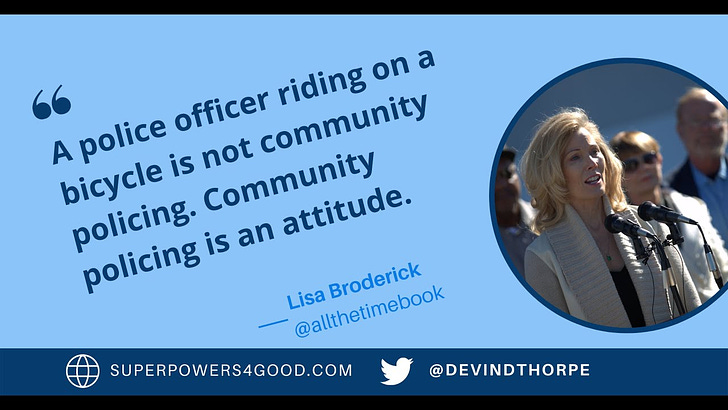


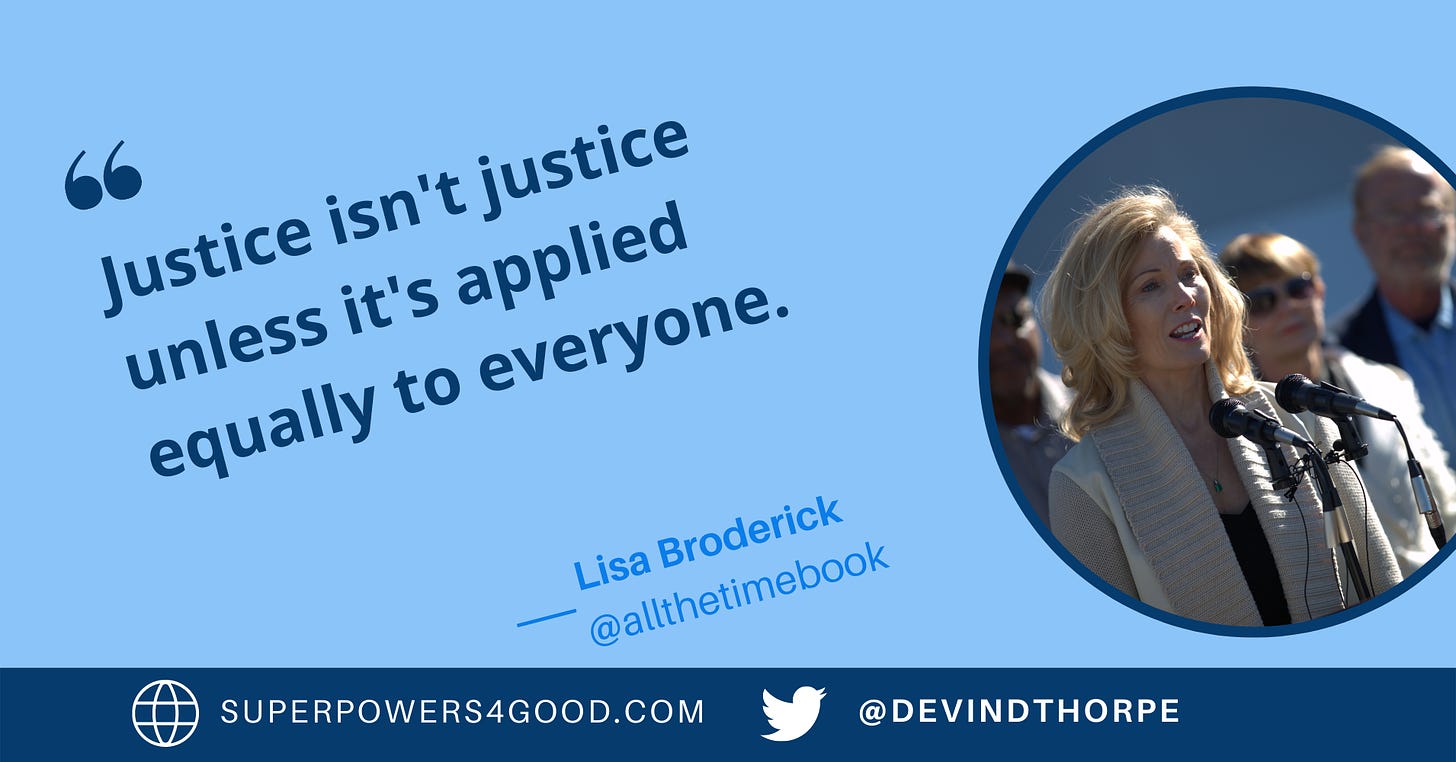
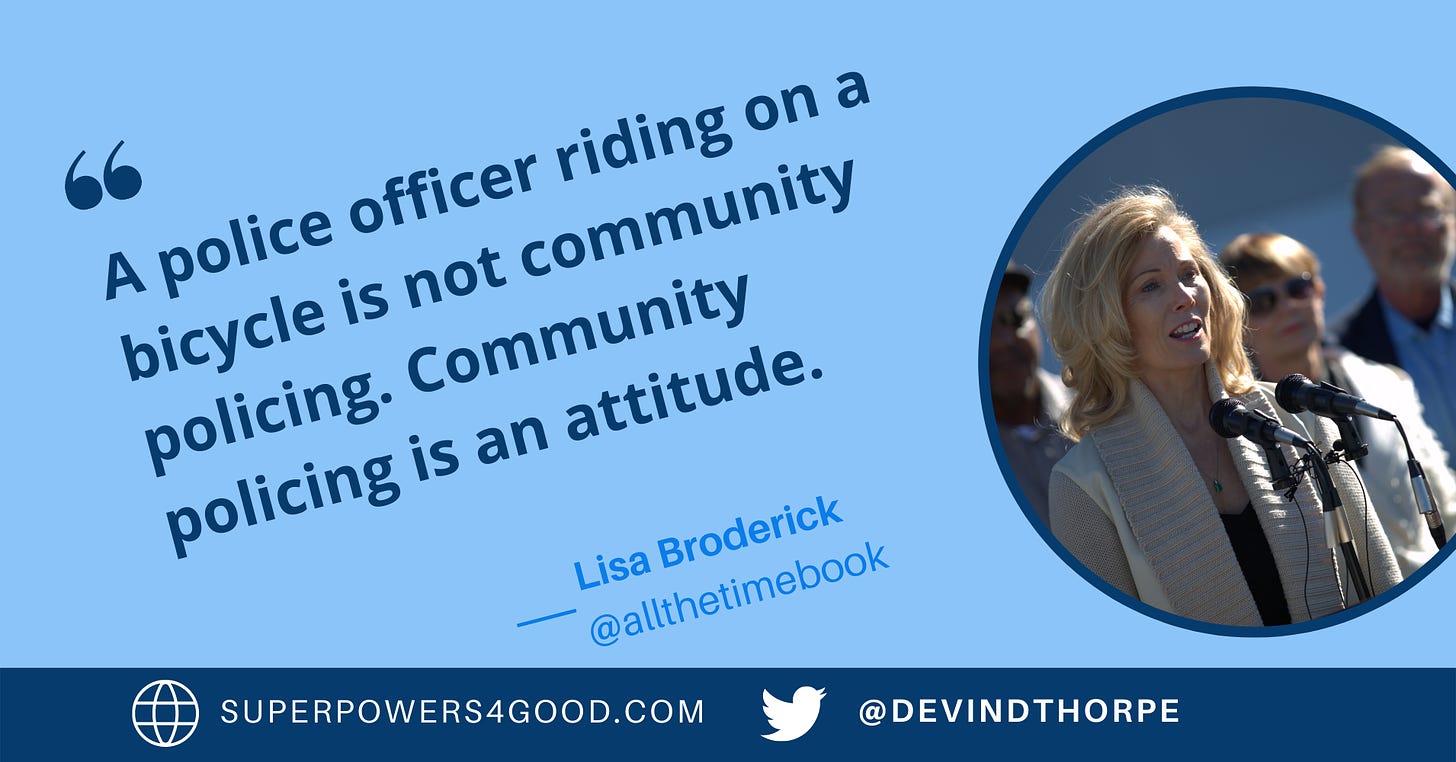



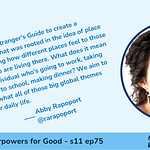













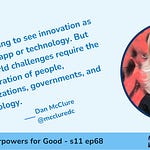
How One Organization Is Revitalizing 'Keeping the Peace' As Model Police Work